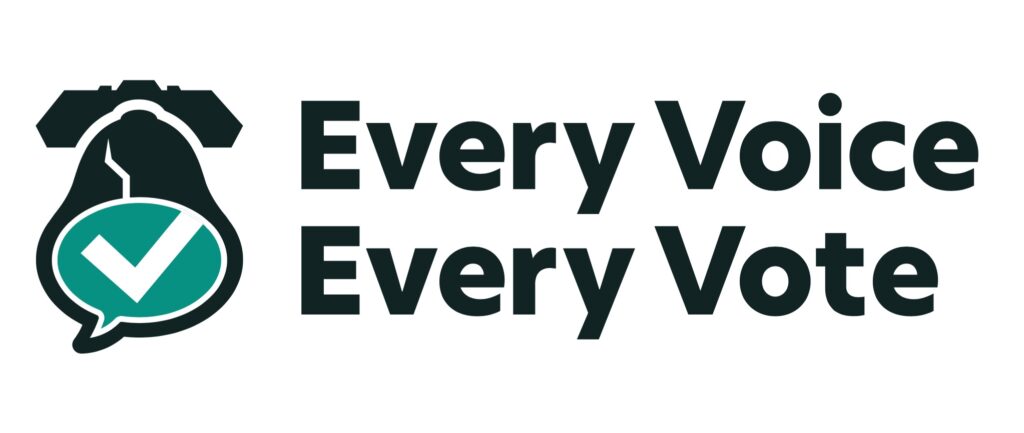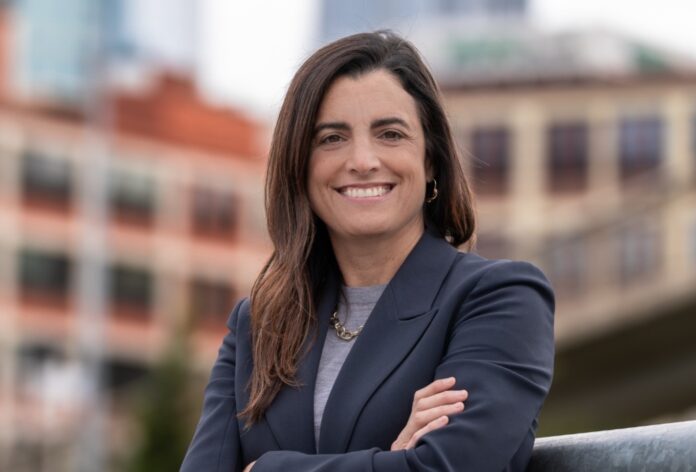Rebecca Rhynhart made history in 2017 when she was the first woman elected to serve as city controller. In 2023, she may make history again — should she win a race that includes a total of four women out of 11 candidates — as the first woman mayor of Philadelphia. According to her website, Rhynhart has plans to address gun violence — including signing an executive order to address it — as well as taking on the city’s opioid crisis and economic development issues.
PGN will be publishing interviews with the mayoral candidates in the order they were completed. Rhynhart’s interview occurred on Feb. 15. Some responses have been edited for length and clarity.
What are the challenges facing Philadelphia’s LGBTQ community, and how will you address them?
There’s a few. First, the Commonwealth of Pennsylvania does not protect the rights of our LGBTQ residents. So as mayor, my administration will. I believe strongly in people’s rights and the diversity of our city. And I will stand up for everyone, in particular the LGBTQ community, to make sure that [their] needs are being met and to make sure that voices are heard. I think in terms of the challenges facing the community right now, the violence against LGBTQ people of color — especially Black trans women — is an urgent challenge. And this is something that we’ve seen an increase in and it must be stopped. It must be tackled. And as mayor, I’ll convene a diverse group of stakeholders to examine issues, to take necessary steps to tackle [them], and will overall be an ally to the LGBTQ+ community.
What LGBTQ community leaders and organizations have you worked with in the past?
In my different roles in the city, I always stood up for LGBTQ residents. I’ve had relationships with community leaders and organizations. But I want to give a specific example of the type of work I do because I think that illustrates who I am and the type of leader I am and will be for the LGBTQ+ community. When I was City Controller, in 2021, my office was informed that a department was requiring a transgender individual to use their dead name to sign in to work. And it was very upsetting to this person, of course. And once the information came to my office, we took immediate action. And the HR person that was involved claimed it was required. It wasn’t required. We elevated the issue to central HR and what ended up happening is the department changed their policy and allowed them to sign in with the name they wanted to sign in as.
Standing up for individuals and standing up for members of the LGBTQ+ community is what I’ll do. It’s who I am. And, on a much lighter note, I’ve also worked with Liberty City [LGBTQ Democratic Club] over the years. I’ve emceed their events with them. And I’ve just been happy to be part of the community and to be welcomed into the community that way.
In light of the numerous mass shootings, including at Club Q in Colorado and the many mass shootings in Philadelphia, what confluence, if at all, do you see between the issues of hate crimes and gun violence? And how does your approach to gun control address that?
So there’s two different pieces of that. One, there’s this underlying hatred and we can’t normalize that. We must urgently fight against hatred, against discrimination. The mass shootings are a combination of hatred and issues with gun control. And we need to address both at the same time. So we must absolutely say there is no place for that hatred, that we must be an accepting community, that each person should be celebrated for who they are and what makes them unique. And that is something that I believe really strongly.
On gun control, of course we need better, more sensible gun laws at the state level. And we also, by the way, need nondiscrimination protections for LGBTQ+ individuals at the state level. But we need to lead by example in Philadelphia. And on gun violence, I put forth my public-safety plan last week that we need to get the illegal guns off the streets. We need to make sure that we’re implementing the intervention strategies that have been shown to work [in] getting violence down.
At the same time, we need to implement real true community policing. Those are the pieces of safety that need to happen and that we can do within the city’s control. And then also the long-term solution: We have to fix the underlying poverty and lack of opportunity that causes a lot of our gun violence in Philadelphia.
How will you address the issue of violence against trans women, specifically trans women of color?
This is a very urgent issue: The violence against trans women of color. The hatred. The stigma. It cannot be tolerated. I will not tolerate it. I’ll make sure that our police department directives for how officers respond are properly and thoroughly handled and that policies are in place to best deal with issues from a policing perspective.
And also, I’ll designate resources in our city departments to specifically support the needs of LGBTQ+ residents, including Black transgender women. And those city services may include shelters for survivors of domestic violence, health-care resources and more. I’ll listen to stakeholders and individuals that are directly impacted [regarding] what is needed and how we can use city resources and city services to best support Black transgender women [and] LGBTQ+ residents of color.
Why should the LGBTQ community give you their vote?
I believe I’m the best person to lead our city forward. I’ve worked for the residents for the last 15 years. I know the city inside and out. I can address the issues on day one. And I believe strongly in standing with the LGBTQ+ community and making sure that there is true equity and justice and liberty and that our city is celebrated for the rich diversity of the LGBTQ community overall. And I’ll stand up for the community and make sure that we all move forward together.
For more information about Rebecca Rhynhart, visit rebeccaforphiladelphia.com/.

